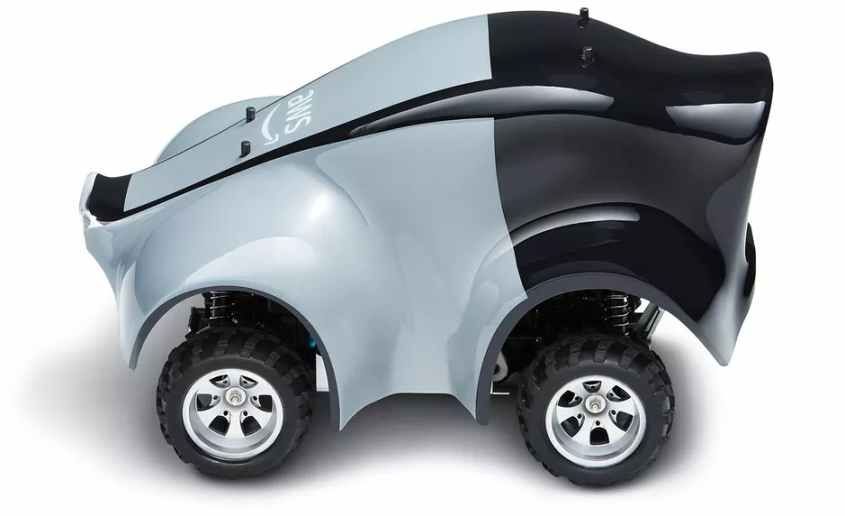Top tech startup news for today, Monday, January 6, 2020

Happy New Year! Below are some of the top startup new stories for today, Monday, January 6, 2020.
Amazon to showcase its transportation drive at CES 2020. Amazon is dominating pretty much every industry, from its cars talk using Alexa’s voice to managing data from factories full of robots, now the tech giant is planning to unveil its transportation next week at CES 2020 in Las Vegas, Nevada. As part of the showing, Amazon is planning to position itself, not just as an e-commerce giant, but as a major player in self-driving vehicle technology, connected cars, electric vehicles and management of the torrents of data generated by automakers and drivers. “We really are extending ourselves more and more out in the ecosystem from manufacturing to connected car,” Jon Allen, head of professional services in Amazon Web Services’ automotive practice, said in a telephone interview. “The takeaway message on this is if you go to CES this year we really are taking it as a ‘One Amazon’ view.”
SoftBank’s Vision Fund backs out of several start-up investments after WeWork spiral, Axios ssays. SoftBank’s Vision Fund has backed out of several startup investments after submitting term sheets, Axios reported Monday. The move could be a symptom of a more measured investment strategy with SoftBank’s second Vision Fund after WeWork’s public spiral. WeWork pulled its IPO after a wave of criticism over its financials and corporate governance. Among the startups affected by SoftBank are: Honor, Seismic, and Creator. Honor is a San Francisco home care company for older adults that’s raised over $100 million from firms like Andreessen Horowitz, Naspers, and Thrive Capital. According to Axios, Honor received a term sheet from SoftBank in mid-November, with subsequent reports putting the deal size at around $150 million. But SoftBank later killed the deal one week before Christmas, telling Honor that Son had changed his mind. Son did not personally communicate his decision or rationale to the company.
Funding platform Liquidity Capital invests $12.5M in e-commerce retailtech startup Resident. Liquidity announced it has invested $12.5M trajectory-based funding in Resident, the direct-to-consumer e-commerce retailtech startup to further capitalize on its position as North America’s fastest growing e-commerce retailer and increase growth into additional home products. Resident owns and operates a house of consumer furnishing brands including: Nectar, DreamCloud, Level, Awara, Wovenly, Bundle and 1771 Living. Founded in 2017 by Ron Daniel, Oron Maymon, and Yaron Sela, Liquidity Capital funds tech startups and SaaS providers that demonstrate over $5M in ARR and 30% year-over- year growth, with an average ticket size of $10M-$30M. Founded by serial entrepreneurs and with offices in New York, Miami and Tel Aviv, Liquidity Capital is backed by Mitsubishi UFJ Fund Services and is part of Meitav Dash Ltd., the leading Israeli institutional investment house. Liquidity Capital has already committed over $200M of growth capital in 2019 and plans to fund over $500M in the US market for 2020.
SoftBank bets big on online delivery app startup Rappi to expand throughout Latin America. Japan’s SoftBank is betting big on Latin America delivery startup Rappi with over $1 billion in investment. The startup, which is valued at an estimated $3.5 billion, has swept across nine countries since 2015. It delivers everything from groceries and restaurant food to medication and furniture, and has branched out into scooter rental, travel and basic banking services. Rappi is planning now to push into more cities across Latin America that have at least 500,000 people, while working on adding more digital banking services, added Mejia, who is from Colombia. The startup has yet to expand deeply into Central America.
Samsung to showcase lifelike ‘artificial human’ project. Samsung is expected to unveil its futuristic “artificial human” project at the Consumer Electronics Show (CES) 2020 on Monday. Over the weekend, a Reddit user claimed to have found unlisted videos of the project in the website’s source code, and on Sunday, Neon project lead Pranav Mistry further stoked speculation when he tweeted that he was prepared to demo Samsung’s Core R3 technology at CES. Social media accounts for Samsung’s Neon also teased the mysterious technology ahead of a keynote by Samsung consumer electronics division CEO Hyun-Suk Kim.
Uber completes $3.1 billion acquisition of Careem. Back in March 2019, Uber announced its acquisition of ride-hailing startup Careem for $3.1 billion. Last week, Uber finally completed the acquisition after completing various regulatory requirements. As part of the acquisition, Careem Networks FZ-LLC became a wholly-owned subsidiary of Uber, preserving its brand. In addition, Careem co-founder and CEO Mudassir Sheikha, will continue to lead the Careem business, which will report to a board made up of three representatives from Uber and two representatives from Careem. Careem and Uber will operate their respective regional services and independent brands. Founded in 2012, Careem claims to have 30 million registered users in over 120 cities in the Middle East, North Africa, Turkey and Pakistan. The company, which counts German car maker Damler and China’s largest ride-hailing company DiDi Chuxing among its backers, is Uber’s largest rival in the region.
VC Funding for AI in Drug Development & Clinical Trials Hits $5.2 Billion in 2019. The market for AI in drug development and clinical trials is maturing and entering a new phase; total funding in the industry has reached $5.2 billion, according to a new report from Signify Research. However, investments have slowed down in 2019 and only 4 new companies were formed. Any new start-ups will have to prove themselves able to compete against well-funded first-generation vendors, and existing vendors are under pressure to demonstrate results. Signify Research has analysed the investment landscape and categorized the industry into Information Synthesis, Drug Design and Clinical Trials.




